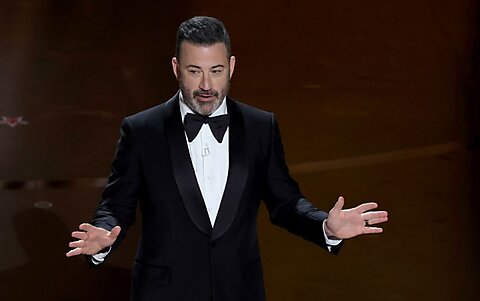On a recent podcast with Benny Johnson, FCC Commissioner Brendan Carr urged broadcasters to “take action … on Kimmel or there’s going to be additional work for the FCC ahead.” That’s an unusually blunt warning, and it gives Americans a glimpse into the strange world of broadcast law.
Many people naturally wonder, “I dislike what Kimmel said—but how can regulators threaten TV stations? Isn’t that a free speech violation?” It should be. But because of a 1943 Supreme Court decision, broadcasters operate at the sufferance of the FCC.
The First Amendment generally protects speakers from government coercion. But for reasons the Supreme Court never persuasively explained, broadcasters have junior-varsity First Amendment rights. They can lose their licenses if they fail to operate in the “public interest”—a vague standard that gives the FCC wide discretion. This is why broadcast television looks and feels different from unregulated services like HBO, Netflix, or YouTube.
The roots of this odd regime go back to the New Deal. In the 1920s and 1930s, Congress nationalized the broadcast spectrum and gave the FCC power to distribute licenses “in the public interest.” NBC challenged the statute in 1941, arguing that the phrase was an unconstitutional delegation of legislative power.
In NBC v. United States (1943), the Supreme Court disagreed and gave the FCC extraordinarily broad authority, holding that “[t]he Act does not restrict the Commission merely to supervision of [broadcast] traffic. It puts upon the Commission the burden of determining the composition of that traffic.”
This was the Court’s high-water mark of deference to government power—upholding, for example, federal control over nearly all economic activity and the deportation of tens of thousands of US citizens to concentration camps. By the 1960s and 1970s, regulating radio and TV content consumed much of the FCC’s attention. Every broadcast applicant had to submit a proposed programming schedule, and in 1970 alone, the FCC received more than 60,000 “fairness” complaints from politicians and members of the public.
But broadcast law has been relatively quiet since the Reagan years. Republicans largely let the FCC’s content powers lie dormant, and even Democrats have pulled back, including formally repealing the intrusive Fairness Doctrine in 2011.
The last major broadcast-content fight came during the 2004 election, when several stations planned to air a documentary critical of John Kerry. After politicians and advocacy groups threatened to challenge the stations’ licenses, they aired only four minutes of the film.
The quiet since then doesn’t mean broadcasters are free. It means they self-censor. Networks and local affiliates try to avoid programming that might strike FCC regulators as misleading, tasteless, or shocking. The FCC has never disavowed its authority over content, and the sword of Damocles still hangs over every licensee.
Just last year, then-FCC Chairwoman Jessica Rosenworcel reaffirmed that:
There is also a clear public interest obligation for Commission licensees, regulatees, and permittees to protect the public from false, misleading, or deceptive programming and to promote an informed public .…
And the FCC continues to maintain its little-known “news distortion” rule. This uncodified policy threatens a broadcaster’s license renewal or transfer if it is found to have deliberately slanted or staged news coverage. Earlier this year, David Inserra and I formally petitioned the FCC to rescind the policy. There’s been no movement in that direction.
Could anyone win a First Amendment lawsuit over Carr’s recent threat? That’s uncertain. Under NBC and the follow-on case Red Lion Broadcasting (1969), courts have repeatedly upheld the FCC’s authority to condition licenses on content obligations. And few licensees are eager to sue their regulator.
The Supreme Court had chances in 2009 and 2012 to revisit this area and apply its more robust First Amendment precedents to broadcasters. It declined.
Still, they should. Today’s Court is more skeptical of broad regulatory power. As long as the FCC retains the authority to police broadcast content, every licensed station operates under an implicit threat: say something a powerful political faction dislikes, and your license is in jeopardy. That’s incompatible with a First Amendment worthy of the name.
It is time for the courts—or Congress—to recognize that broadcasters, like every other speaker, deserve full constitutional protection. Until then, broadcasters will continue to walk on eggshells, and government officials will continue to wield a power that chills free expression.










